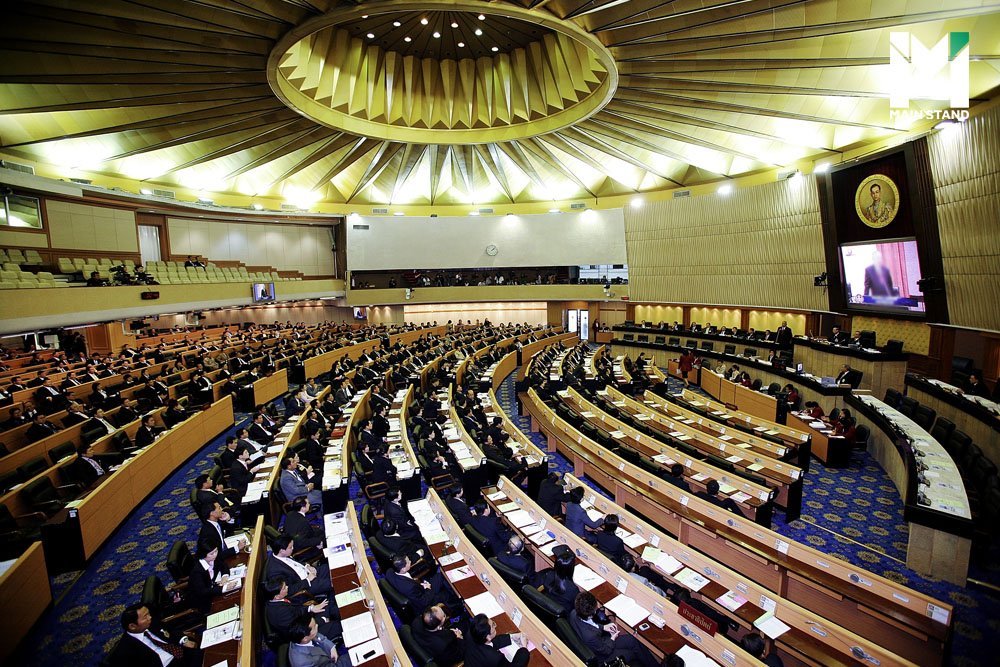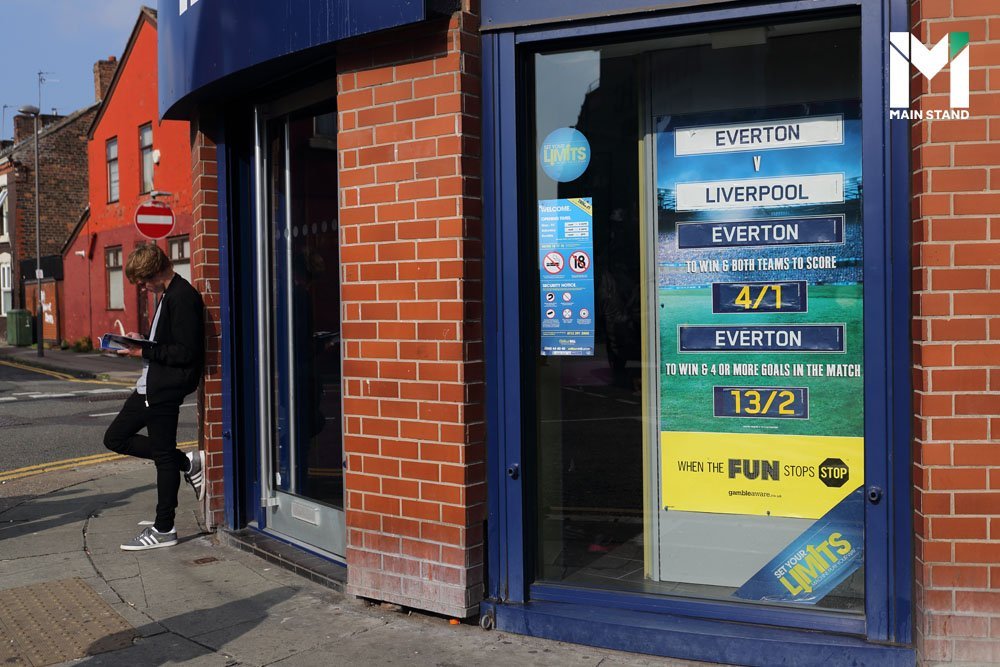
It is undeniable that football betting enriches the taste of enjoying football games in the west, especially in England, where legal football betting companies are ubiquitous.
Betting comes in many kinds, from betting on who will be the champion to which side wins the coin toss before the match.
Nowadays, more betting channels are available, for example, online sportsbooks, VPN betting, or through cryptocurrency and NFTs, enabling bettors to enjoy gambling more conveniently. This results in vast revenue that significantly impacts the economy.
On the other hand, Thailand is inundated with football betting, yet such a way to capture excitement is "outlawed." As it contradicts the nation’s regulations, no earnings from wagering circulate in the system, negatively affecting the country's economic outlook.
Today, Main Stand discusses how Thai football could benefit from sports gambling and the factors hampering it.
Gambling’s place in Thai society
The legalization of sports gambling has long been controversial in Thailand. Based on morals and etiquette, betting can be viewed as destructive to society as conservative authorities consider money from football betting "sinful money."
Likewise, older generations believe betting is addictive and gambling addiction can rise among younger generations once they succeed in wagering for the first time, motivated by unceasing greed to earn more money.

However, the legalization of betting was once considered, evidenced by former Finance minister Pridi Banomyong's proposal to implement gambling and casino taxation during Thailand’s Phraya Phahon tenure in 1939.
On top of that, the government attempted to establish gambling and entertainment complexes during former Thai Prime Minster Thaksin Shinawatra's tenure in 2005. This is, so that money from such a non-athletic activity circulates in the country’s economic system.
Even so, the proposal was not further discussed, with no advantages or disadvantages.
Although Thailand has thrown a national ban on sports gambling, it is irrefutably booming in the Land of Smiles. Thanks to the increasing popularity of the Thai League in the past decade, they have shifted from betting only on European football leagues to wagering on domestic matches.
According to the study on football betting in the Thai League by Dr. Wasan Panyakaew, an Associate Professor of the Department of Sociology and Anthropology at Chiang Mai University, over 60% of Thai football fans bet on football, most of whom are paid below 10,000-20,000 baht (€273-546) a month.
This substantiates the claim that football betting is deeply ingrained in Thai football.
For morality, sports betting is unacceptable. But based on reality, considering the rise in popularity among Thais and the proceeds circulating in the system, legalizing football gambling should be considered. Otherwise, the government, the Thai people and the sports industry would earn nothing from the vice.
Worth placing a wager
There is plenty of evidence to support the legalization of football betting. The most obvious one is England which has allowed the English Football League (EFL) to be sponsored by betting companies since 2016.
EFL earns over £40million annually from well-known British-based gambling company Sky Bet, the league’s highest-paid sponsorship.

The Premier League also permits gambling companies to sponsor football clubs. This includes partnerships, commercials on stadium LED billboards, and team jersey sponsors.
Unlike other businesses, betting companies are ready to invest in clubs that might be considered less prominent globally. For example, Betway sponsors West Ham United £10m per season, which is higher than its previous sponsor Alpari (an English trading company), which offered the club £3m annually.
Aside from the top six teams in the Premier League, West Ham United are the seventh highest-paid club through sponsorships. In the 2022-23 season, nine English top-division clubs are sponsored by gambling companies, accounting for nearly half the league.

Due to its advantages, betting could be legalized to develop Thai football further.
If people can legally gamble on football, Thai football has room for massive development in several financial aspects.
More money will be circulating in domestic football, whether from league or club sponsorships. Moreover, this revenue could reduce the gap inequality gap that that exists in the league. To paint a better picture, reigning Thai League 1 champions Buriram United have a total market value of €8.63m. Meanwhile, the newly-promoted Lampang FC are estimated to be worth €2.90m.
The government and the opposing parties agreed to have the ad-hoc committee consider legalizing casinos and online forms of gambling. But this is still under consideration and is estimated to take some time to come to fruition.
The hidden powers
Despite numerous advantages, Thai people know why gambling is yet to be legalized.
The government is not the only organization that runs the country, but also other organizations, directly and indirectly. Moreover, those hidden powers behind the government have the most authority.

It’s also important to remember that the people running the country are not just the prime minister, ministers and members of the parliament. There are also police officers, soldiers, and more, totaling over two million government officers.
Since they are old schools, they disapprove of the legalization of sports betting due to its negative connotations.
With their manipulative power, the bill wasn't passed.
Some people call these high-ranking officials hypocrites. Previous scandals have shown the benefits they have gained from using illegal revenue from turning a blind eye to gambling in exchange for revenue and support from the dark powers who run the gambling scene in Thailand.
Therefore, legalizing sports gambling could weaken these people’s illegal income and power in society.
It’s not all about gambling
Thai football can significantly benefit from betting, but unfortunately, it is not legal and won’t be for the foreseeable future.
But even if it is legalized, financial assistance from gambling companies doesn’t directly correlate to a successful league. Whether money is from betting companies or legal private entities, the revenue can be wasted if mismanaged.

Thai football fans have seen many wealthy football clubs vanish over the past decade. Whether the Royal Thai Army club Army United or state-owned oil and gas company PTT Rayong, both teams have folded as a consequence of the affluent owners’ negligence.
Therefore, Thai football’s clearest path to success starts with establishing the right foundations at all levels. From consistently hosting annual youth football competitions to paying the broadcast revenue in a timely manner, these are essential building blocks to globalizing the league.
Legalizing gambling in the country could provide financial advantages instrumental in developing Thai football. But, as past case studies have shown, this doesn’t guarantee long-term success.
Sources
Books:
Football and Gambling in Routledge Handbook of Football Studies
พนันบอล อำนาจ และความเป็นชาย ใน ฟุตบอลไทย: ประวัติศาสตร์ อำนาจ การเมือง และความเป็นชาย
พนันบอลกับไทยลีก ใน ฟุตบอลไทยพรีเมียร์ลีก: ผู้หญิง อำนาจ วัฒนธรรมแฟน และชนชั้นใหม่
Articles:
สมศักดิ์ เจียมธีรสกุล: เมื่อ ปรีดี พนมยงค์ ตั้ง "สถานกาซิโน"
Websites:
https://www.bbc.com/thai/thailand-59505182
https://www.posttoday.com/social/general/213750
https://www.thairath.co.th/news/local/1874588
https://www.nationtv.tv/news/378878056






